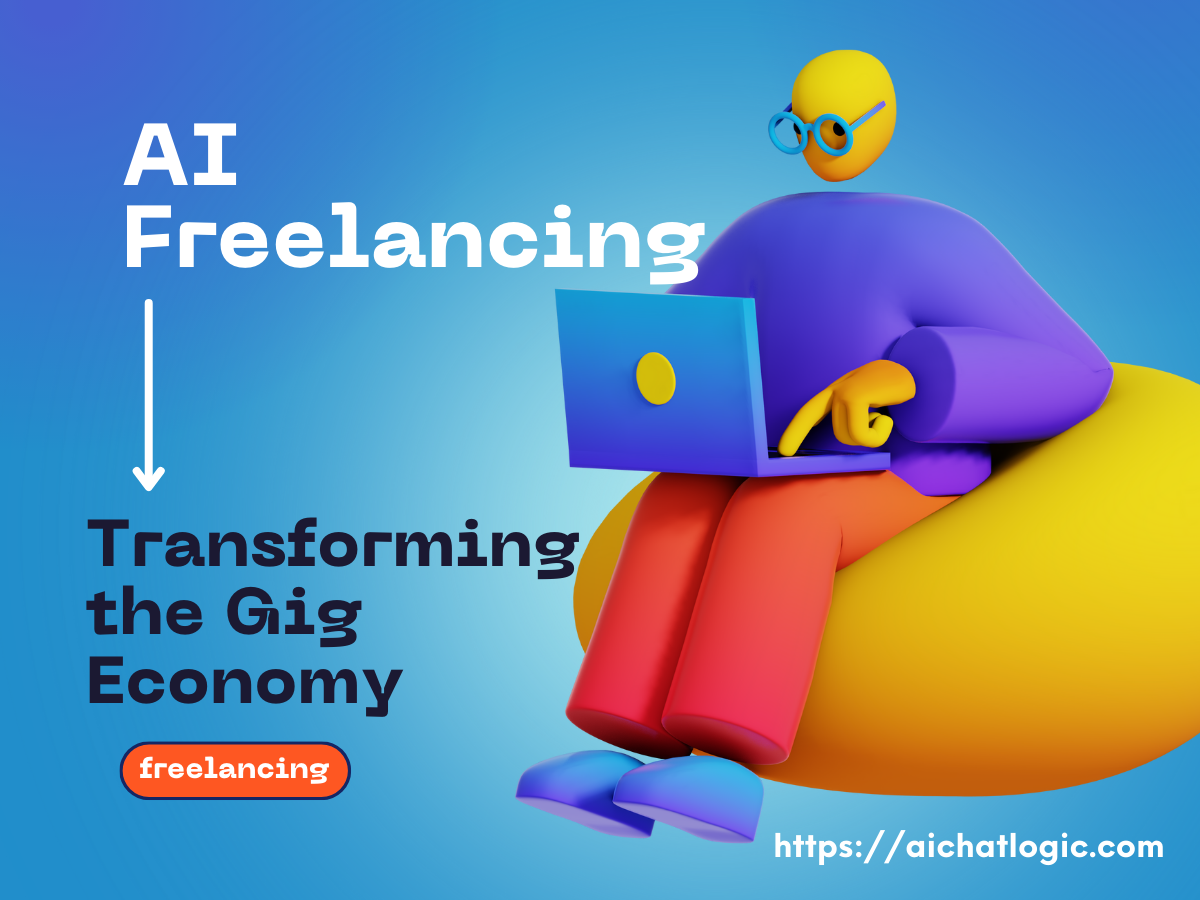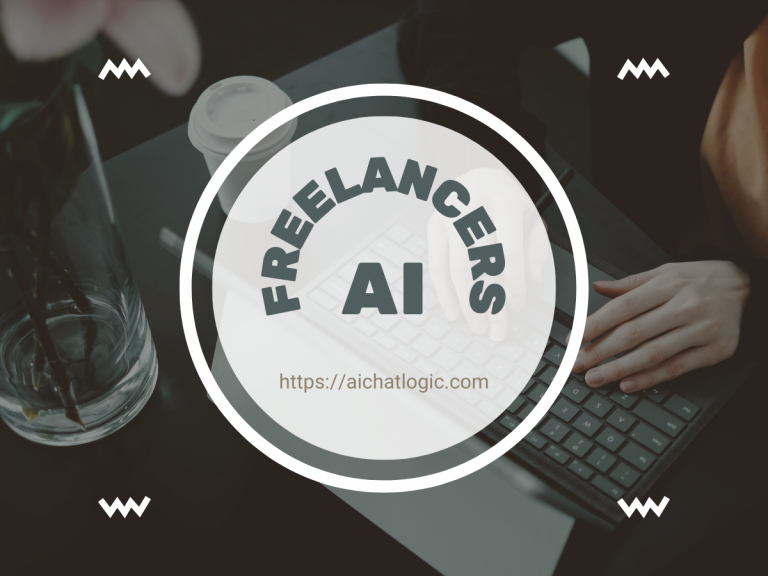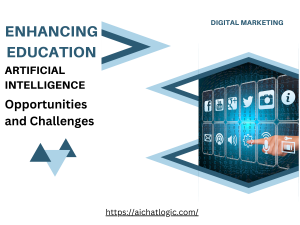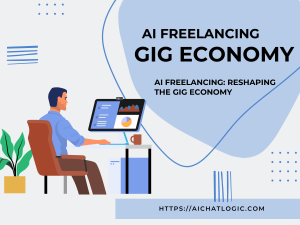1. Introduction
In recent years, the gig economy has experienced significant growth, fueled by technological advancements and the changing nature of work. One of the emerging trends within this landscape is AI freelancing. AI freelancing refers to the utilization of artificial intelligence technologies and platforms for freelance work. This article explores the transformative potential of AI freelancing and its impact on the gig economy.
2. Understanding the Gig Economy
Before delving into AI freelancing, it’s crucial to understand the gig economy. The gig economy encompasses a labor market characterized by short-term, temporary, or freelance work arrangements. Freelancers, also known as gig workers, offer their skills and services on a project-by-project basis, rather than engaging in traditional employment with a single employer.
3. The Rise of AI Freelancing
With the rapid advancement of AI technologies, the gig economy has witnessed the emergence of AI freelancing. AI freelancers leverage their expertise in artificial intelligence, machine learning, and data analysis to provide specialized services to clients. These services can range from developing AI-powered applications to creating predictive models for businesses.
AI freelancing platforms have emerged as intermediaries connecting clients with AI experts. These platforms facilitate the matchmaking process, ensuring that clients can find the right AI freelancers for their projects. They also provide tools and resources that enable seamless collaboration and project management.
4. Advantages of AI Freelancing
AI freelancing offers several advantages for both freelancers and clients. For freelancers, it provides an opportunity to work on cutting-edge AI projects and gain exposure to diverse industries. They can choose projects that align with their skills and interests, allowing for professional growth and specialization.
Clients benefit from AI freelancers’ expertise without the need for long-term commitments or expensive in-house resources. They can tap into a global talent pool of AI professionals, accessing skills that may not be available within their organization. AI freelancers often bring fresh perspectives and innovative solutions to the table, enhancing the quality of work delivered.
5. Challenges and Limitations
While AI freelancing brings numerous benefits, it also presents challenges and limitations. One key challenge is the competition within the AI freelance marketplace. With the growing popularity of AI, the number of AI freelancers has increased, leading to a more competitive landscape. Freelancers must continuously upskill themselves to stay relevant and stand out from the crowd.
Additionally, the complex nature of AI projects may require extensive communication and collaboration between freelancers and clients. Ensuring effective communication and understanding of project requirements can be challenging, particularly when working remotely across different time zones.
6. Impact on Traditional Employment
The rise of AI freelancing has implications for traditional employment models. As AI technology continues to advance, certain job roles may become automated or streamlined, leading to a shift in the demand for traditional employment. Organizations may increasingly rely on AI freelancers for specialized AI tasks, reducing the need for full-time AI professionals on their payroll.
However, AI freelancing also presents opportunities for traditional employees to leverage their AI skills and explore freelance work. They can supplement their income or transition into full-time AI freelancing, enjoying the flexibility and autonomy it offers.
7. How to Succeed as an AI Freelancer
To succeed as an AI freelancer, it’s essential to develop a strong professional brand and establish credibility in the field. Building a portfolio of AI projects and showcasing expertise through online platforms and communities can attract clients and build a reputation. Networking with industry professionals and staying up to date with the latest AI trends are also crucial for continued success.
AI freelancers should focus on delivering high-quality work, meeting project deadlines, and providing exceptional customer service. Nurturing client relationships and seeking referrals can lead to a steady stream of projects and opportunities for growth.
8. Future Trends in AI Freelancing
The future of AI freelancing holds tremendous potential. As AI technology continues to evolve, we can expect more sophisticated AI tools and platforms to support freelancers and clients. AI-powered project management systems, automated workflows, and enhanced collaboration tools will streamline the freelancing process, making it more efficient and productive.
Additionally, the integration of AI with other emerging technologies, such as blockchain and the Internet of Things, may open up new avenues for AI freelancers. These synergies can lead to the development of innovative AI solutions and expand the scope of freelance opportunities.
9. Conclusion
AI freelancing is revolutionizing the gig economy, offering exciting possibilities for both freelancers and clients. The combination of AI expertise, flexible work arrangements, and global connectivity has transformed the way we approach work. As AI technology continues to advance, the demand for AI freelancers is likely to grow, creating a thriving ecosystem of talent and innovation.
AI freelancers should embrace this transformative trend, continuously adapting and evolving their skills to meet the evolving demands of the industry. By staying proactive, building strong professional networks, and delivering exceptional work, AI freelancers can carve a successful path in the dynamic world of AI freelancing.
FAQs
Q1: How can I start as an AI freelancer? To start as an AI freelancer, build a strong foundation of AI skills and knowledge. Create a portfolio of projects that demonstrate your expertise and join online platforms or communities where you can showcase your work. Network with industry professionals and seek opportunities to collaborate on AI projects.
Q2: How do AI freelancing platforms work? AI freelancing platforms connect clients with AI freelancers. Clients post their project requirements, and freelancers can bid or apply for the projects. The platforms facilitate the matchmaking process, ensuring a smooth collaboration between clients and freelancers.
Q3: Are there any specific AI skills in high demand for freelancers? Skills such as machine learning, natural language processing, computer vision, and data analysis are in high demand for AI freelancers. Keeping up with the latest advancements in these areas and continuously upskilling yourself will give you a competitive edge.
Q4: Can AI freelancers work remotely? Yes, AI freelancers can work remotely. Most AI freelancing projects are conducted online, allowing freelancers to work from anywhere in the world. Remote work offers flexibility and the opportunity to collaborate with clients and teams from different locations.
Q5: What is the future of AI freelancing? The future of AI freelancing looks promising. As AI technology advances and becomes more integrated into various industries, the demand for AI freelancers is expected to increase. AI freelancers will play a vital role in developing innovative solutions and driving technological advancements.













+ There are no comments
Add yours